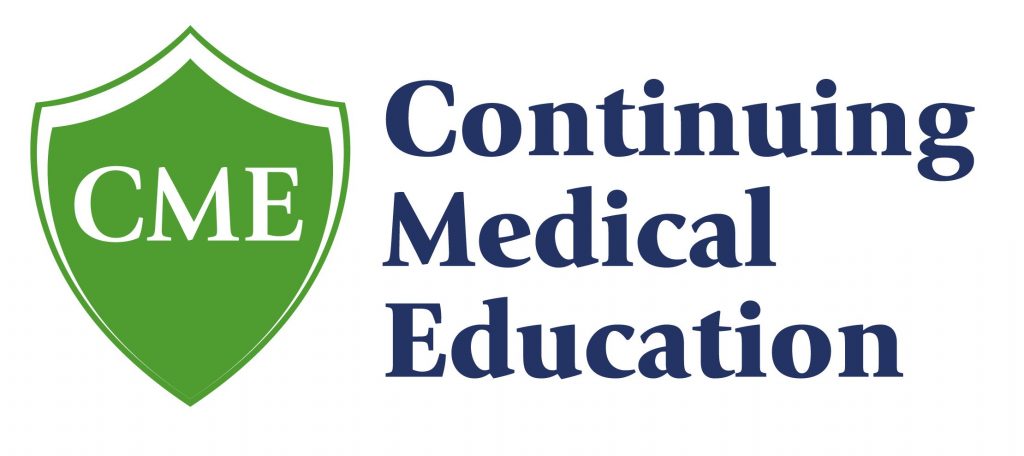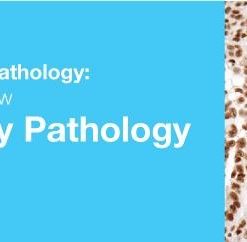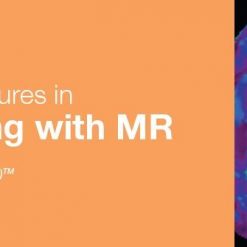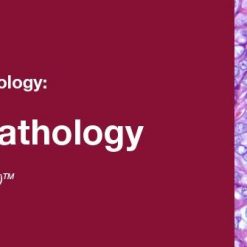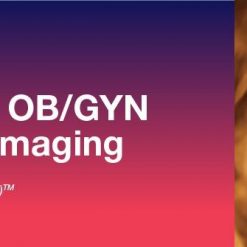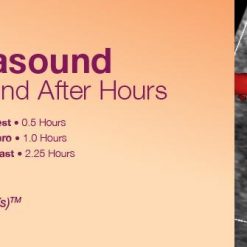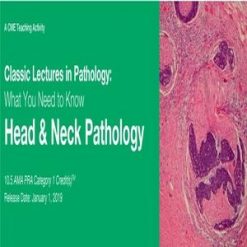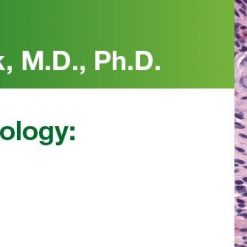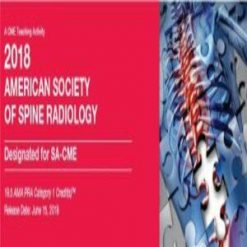-
×
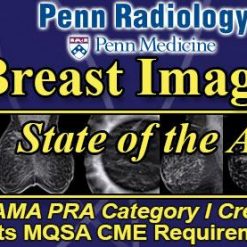 Penn Radiology – Breast Imaging State of the Art 2018
1 × $35
Penn Radiology – Breast Imaging State of the Art 2018
1 × $35 -
×
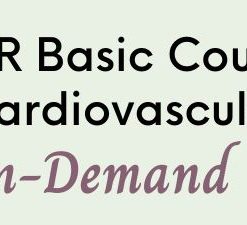 SPR 2021 18th Basic Course on Pediatric Cardiovascular MRI On-Demand
1 × $45
SPR 2021 18th Basic Course on Pediatric Cardiovascular MRI On-Demand
1 × $45 -
×
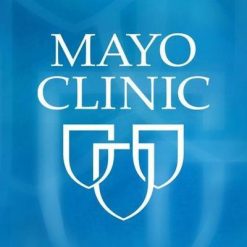 Mayo Clinic Online General Cardiology Board Review 2018-2019 (Videos+PDFs)
1 × $35
Mayo Clinic Online General Cardiology Board Review 2018-2019 (Videos+PDFs)
1 × $35 -
×
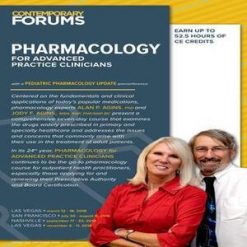 Pharmacology for Advanced Practice Clinicians 2018
1 × $30
Pharmacology for Advanced Practice Clinicians 2018
1 × $30 -
×
 Perioperative Assessment of the Maxillofacial Surgery 2019
1 × $40
Perioperative Assessment of the Maxillofacial Surgery 2019
1 × $40 -
×
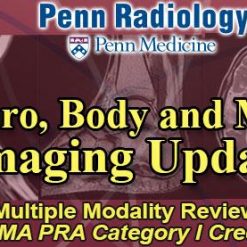 Penn Radiology – Neuro, Body and MSK Imaging Update 2018
1 × $40
Penn Radiology – Neuro, Body and MSK Imaging Update 2018
1 × $40 -
×
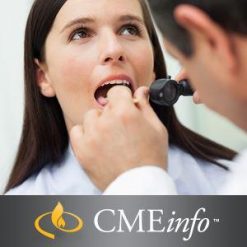 Symptom Evaluation for Primary Care 2016
1 × $25
Symptom Evaluation for Primary Care 2016
1 × $25 -
×
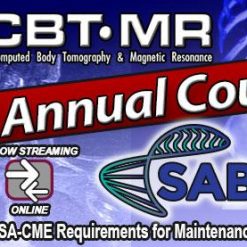 SCBT-MR 42nd Annual Course 2020
1 × $40
SCBT-MR 42nd Annual Course 2020
1 × $40 -
×
 The Aesthetic Series: Premier Global Hot Topics + Nuances and Techniques in Injectables 2020
1 × $65
The Aesthetic Series: Premier Global Hot Topics + Nuances and Techniques in Injectables 2020
1 × $65 -
×
 Psychopharmacology – A Masters Class 2021
1 × $50
Psychopharmacology – A Masters Class 2021
1 × $50 -
×
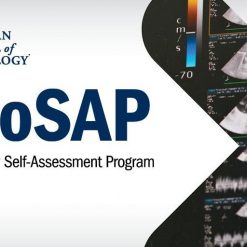 ECHOSAP (Echocardiography Self-Assessment Program) 2018 (VIDEOS & JPGs)
2 × $35
ECHOSAP (Echocardiography Self-Assessment Program) 2018 (VIDEOS & JPGs)
2 × $35 -
×
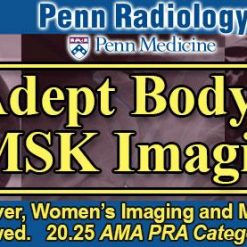 Penn Radiology – Adept Body and MSK Imaging 2020
1 × $45
Penn Radiology – Adept Body and MSK Imaging 2020
1 × $45
The PassMachine Consultation-Liaison Psychiatry Board Review 2020
$70
SKU: The PassMachine
Categories: All Products, Psychiatry Courses
Tags: (all, 2020,, Board, Board Review Video, board review video course, board video, CME INFO Video, CME Video, consultation-liaison, Consultation-Liaison Psychiatry Board Review, Consultation-Liaison Psychiatry Board Review 2020, courses, download cme info video, download cme video, download medical board video, download medical cme video, download medical video, Medical Board Review Video, medical cme video, Medical Specialty Review Video, medical vide, medical video, medical video course, MedicalCoruse.shop,, medicalvideo.store,, new,, Passmachine, products, Psychiatrics, Psychiatry, Psychiatry Board Review 2020, Review, Specialty Review Video, specialty video, The, The PassMachine Consultation-Liaison Psychiatry, The PassMachine Consultation-Liaison Psychiatry Board Review, The PassMachine Consultation-Liaison Psychiatry Board Review 2020, uncategorized, Videos,
The PassMachine Consultation-Liaison Psychiatry Board Review 2020
YOU WILL GET THE COURSE VIA LIFETIME DOWNLOAD LINK (FAST SPEED) AFTER PAYMENT
‘‘Here’s the challenge: this Consultation-Liaison Psychiatry review features 50.5 hours of laser-focused lectures and 900+ Q Bank questions, but all that great content means nothing if you don’t get through it in time for the exam. So, Beat The Boards! makes your prep easy
Intended Audience: Psychiatrists
Learning Objectives:
Upon completion of this program, participants should be able to conduct, discuss, and describe:
– Assessment and screening of eating and feeding disorders
– Assessment and management of psychosomatic aspects of select heart diseases and psychiatric syndromes in heart disease
– Management of substance-related and addictive disorders
– Normal sexual function and age-related changes, general assessment and management approaches for sexual dysfunctions, gender dysphoria, paraphilic disorders
Topics And Speakers:
– 01A Psychiatric Disorders in Chronic Kidney Disease I
– 01B Psychiatric Disorders in Chronic Kidney Disease II
– 01C Psychiatric Disorders in Chronic Kidney Disease III
– 02A Neurology I- Cortical Syndromes
– 02B Neurology II- Movement Disorders & Stroke
– 02C Neurology III- Seizures & Headaches
– 03A Endocrine I- Diabetes Mellitus
– 03B Endocrine II- Thyroid and Parathyroid Diseases
– 03C Endocrine III- Parathyroid and Adrenal Diseases, Pheochromocytoma, and Osteoporosis
– 03D Endocrine IV- Assessment and Management of Psychosomatic Aspects of Select Endocrine Diseases
– 04A Surgery and Surgical Critical Care I- Role of Psychiatrist and Preoperative Psychiatric Evaluations
– 04B Surgery and Surgical Critical Care II- Preoperative and Perioperative Issues
– 04C Surgery and Surgical Critical Care III- Postoperative Issues, Management of Psychiatric Disorders on Surgical and Intensive Care Units, ICU Delirium, and Burn Patients
– 05A Obstetrics and Gynecology I- Introduction to Obstetrics and Gynecology and Psychiatric Comorbidities in OB_GYN Diseases
– 05B Obstetrics and Gynecology II- Assessment and Management of Psychosomatic Aspects of Select OB_GYN Conditions
– 05C Obstetrics and Gynecology III- Assessment and Management of Psychosomatic Aspects of Select OB_GYN Conditions
– 06 Rheumatology
– 07A Dermatology I- General Assessment Approaches, General Management Approaches, and Dermatologic Manifestations of Psychiatric Disorders
– 07B Dermatology II- Psychological Factors in Dermatologic Diseases and in Their Treatment, Factitious Disorders, and Prescribing Guidelines
– 08A Heart I- Assessment and Management of Psychosomatic Aspects of Select Heart Diseases and Psychiatric Syndromes in Heart Disease
– 08B Heart II- Psychological Factors in Heart Disease and its Treatment and Psychiatric Assessment in the Context of Heart Disease
– 08C Heart III- Psychiatric Management in the Context of Heart Disease and Prescribing Guidelines
– 09A Pain I- Introduction, Epidemiology of Pain Conditions and Scope of Pain-killer Epidemic, Neurobiology, Cognitive and Emotional Factors
– 09B Pain II- Pain Assessment_Pain Scales and Assessment and Management of Psychosomatic Aspects of Select Pain Conditions
– 09C Pain III- Psychiatric Comorbidities and Differential Diagnoses, Pharmacologic and Other Somatic Interventions, Psychosocial Treatment Interventions, and Other Topics
– 10A Transplant Psychiatry I- Pre-transplant Evaluation
– 10B Transplant Psychiatry II- Post-transplant Management
– 11A Palliative Medicine I- Introduction to Palliative Medicine and Managing Psychiatric Disorders in the Palliative Setting
– 11B Palliative Medicine II- Psychological Interventions, Spirituality, Working with Families, Interdisciplinary Issues, Grief, Grief Therapy, and Bereavement
– 12A Pulmonary Disorders I- Assessment and Management of Psychosomatic Aspects of Select Pulmonary Diseases
– 12B Pulmonary Disorders II- Assessment and Management of Psychosomatic Aspects of Select Pulmonary Diseases
– 12C Pulmonary Disorders III- Psychiatric Assessment and Management in the Context of Pulmonary Disease
– 13A Gastrointestinal Disorders I- Assessment and Management of Select GI Syndromes
– 13B Gastrointestinal Disorders II- Hepatitis, Drug Induced Liver Disease and Liver Transplantation
– 13C Gastrointestinal Disorders III- Pancreatic Disorders, Psychiatric Management in Liver Disease and Psychological Factors in GI Diseases
– 14A Legal Issues- Part I
– 14B Legal Issues- Part II
– 15 Ethics and Practice Issues
– 16A Psychoncology I- Psychiatric Syndromes Present in Cancer, Psychological Factors in Cancer and in its treatment, and Psychiatric Assessment
– 16B Psychoncology II- Psychiatric Management in the Context of Cancer, Medication Use and Adverse Effects in Context of Cancer and Psychiatric Morbidity
– 17A Pediatric Psychiatry I- General Psychiatric Assessment and Management Approaches
– 17B Pediatric Psychiatry II- Assessment and Management of Psychosomatic Aspects of Select Pediatric Conditions and Prescribing Guidelines- Psychiatric Management In Context of Neurologic Diseases
– 18A Psychosomatic Topics in Physical Medicine and Rehabilitation I- Introduction, Traumatic Brain Injury, and Principles of Cognitive Rehabilitation
– 18B Psychosomatic Topics in Physical Medicine and Rehabilitation II- Spinal Cord Injury, Paralysis, and Neuromuscular Condition
– 19 Special Topics for the Psychosomatic Medicine Course
– 20A Hematology I
– 20B Hematology II
– 21A HIV_AIDS I- Basic Pathophysiology, Diagnosis, and Assessment
– 21B HIV_AIDS II- Psychiatric Management
– 21C HIV_AIDS III- Relevant Psychological Factors and Pharmacologic Issues
– 22A Chronic Fatigue Syndrome I- Basic Pathophysiology, Diagnosis, and Assessment
– 22B Chronic Fatigue Syndrome II- Relevant Psychological Factors, Psychiatric Management, and Pharmacologic Issues
– 23 Fibromyalgia Syndrome
– 24A Assessment I- Consultation Overview, Cultural and Spiritual Issues
– 24B Assessment II- Neuroimaging
– 24C Assessment III- Neuropsychological Testing
– 25A Delirium- Part I
– 25B Delirium- Part II
– 26A Neurocognitive Disorders I- Diagnostic Criteria and Classification
– 26B Neurocognitive Disorders II- Diagnostic Assessment
– 26C Neurocognitive Disorders III- General Management
– 26D Neurocognitive Disorders IV- Review of Alzheimer’s Disease
– 26E Neurocognitive Disorders V- Review of Lewy Body and Vascular Disease
– 26F Neurocognitive Disorders VI- Review of Frontal Temporal NCD and Infectious Diseases
– 26G Neurocognitive Disorders VII- Review of Other Etiologies
– 27 Psychological Reactions to Illness
– 28A Depressive Disorders 1- Clinical Overview & Pathophysiology
– 28B Depressive Disorders 2- Diagnosis and Assessment
– 28C Depressive Disorders 3- Treatment Overview and SSRIs _SNRIs
– 28D Depressive Disorders 4- Antidepressants and ECT
– 28E Depressive Disorders 5- Somatic Treatments and Psychotherapies
– 29A Bipolar Disorders I- Bipolar Disorder Diagnosis, Assessment of Bipolar Disorders and Secondary Bipolar Disorders
– 29B Bipolar Disorders II- Bipolar Disorders in Specific Medical Populations and Management of Bipolar Disorders
– 30A Suicide
– 30B Violence and Aggression
– 31A Schizophrenia Spectrum Disorders and Psychosis I- Epidemiology and Etiologies of Psychosis
– 31B Schizophrenia Spectrum Disorders and Psychosis II- Assessment in the Medically Ill and Psychosis in Specific Medical Populations
– 31C Schizophrenia Spectrum Disorders and Psychosis III- Review of Catatonic Syndrome and Catatonic Syndrome in Specific Medical Populations
– 31D Schizophrenia Spectrum Disorders and Psychosis IV- Review of Specific Schizophrenia Spectrum Disorders and Specific Management Considerations of Psychosis in the Medically Ill
– 32A Anxiety Disorders I- Anxiety Mechanisms and Evaluation
– 32B Anxiety Disorders II- Review of Specific Anxiety Disorders
– 32C Anxiety Disorders III- Secondary Anxiety Disorders
– 32D Anxiety Disorders IV- Anxiety Presentations in Specific Medical Populations
– 32E Anxiety Disorders V- Management of Anxiety
– 32F Anxiety Disorders VI- Post Traumatic Stress Disorder
– 33A Somatic Symptom and Related Disorders
– 33B Factitious Disorder and Malingering
– 34A Eating and Feeding Disorders I- Overview of Eating and Feeding Disorders and Assessment and Screening
– 34B Eating and Feeding Disorders II- Review of Specific Eating and Feeding Disorders- Diagnostic and Clinical Presentations, Epidemiology and Etiologies, Assessment and Management
– 34C Eating and Feeding Disorders III- Specific Eating & Feeding Disorders- Diagnostic & Clinical Presentations, Epidemiology & Etiologies, Assessment & Management and Eating
– 35A Sleep-Wake Disorders I
– 35B Sleep-Wake Disorders II
– 36A Sexual Dysfunctions, Gender Dysphoria, Paraphilic Disorders I- Normal Sexual Function and Age-Related Changes, General Assessment Approaches and General Management Approaches
– 36B Sexual Dysfunctions, Gender Dysphoria, Paraphilic Disorders II- Specific Sexual Dysfunction Disorders, Specific Medical Populations, Gender Dysphoria and Paraphilic Disorders
– 37A Substance-related and Addictive Disorders I- Overview of Substance Related Disorders and Assessment in the Medically Ill
– 37B Substance-related and Addictive Disorders II- Review of Alcohol Sedative Use Disorders
– 37C Substance-related and Addictive Disorders III- Review of Opioid Use Disorders and Review of Stimulant Use Disorders
– 37D Substance-related and Addictive Disorders IV- Nicotine Use Disorders, Cannabis Use Disorders, Other Drugs of Abuse and Impaired Health Care Providers
– 38A Psychopharmacology I- Pharmacokinetics
– 38B Psychopharmacology II- Pharmacodynamics
– 38C Psychopharmacology III- Adverse Drug Reactions and Pregnancy-Related Issues
– 38D Psychopharmacology IV- Prescribing Cautions and Drug-Drug Interactions
